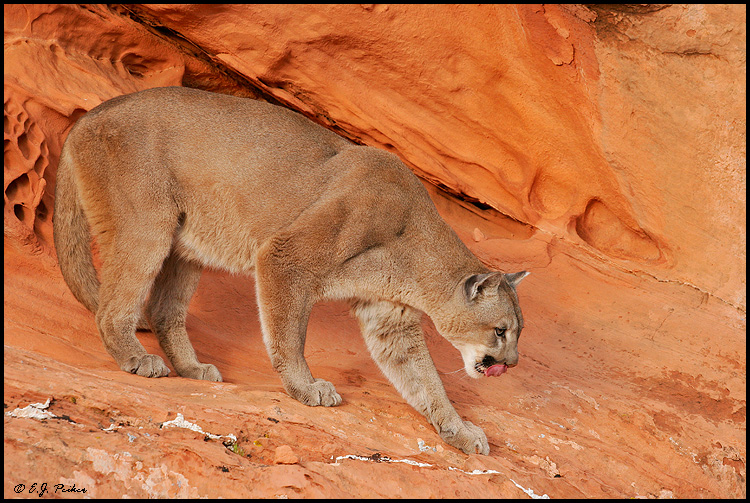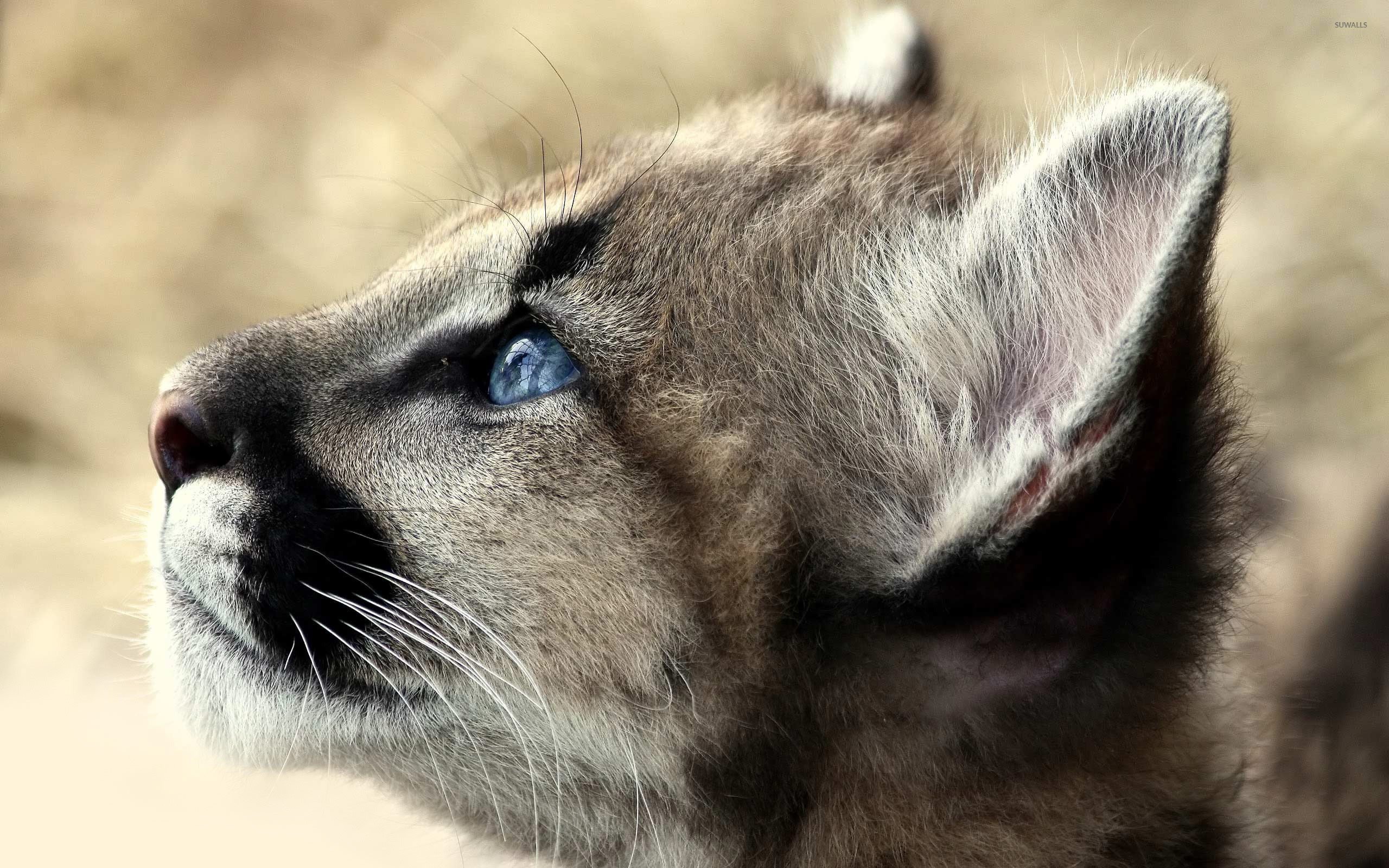Cougars In Georgia: Understanding Their Presence And Significance
Cougars in Georgia have become a topic of growing interest and concern among wildlife enthusiasts, researchers, and local communities alike. These majestic big cats, also known as mountain lions or pumas, are sparking debates about conservation efforts, human-wildlife coexistence, and ecological balance. As sightings increase, understanding their role in Georgia's ecosystem becomes increasingly important.
The presence of cougars in Georgia is not a new phenomenon, but their resurgence has captured public attention. Historically, cougars were native to the region, but habitat loss and hunting pressures drove them to near extinction in the southeastern United States. Today, with conservation efforts and natural migration patterns, these elusive creatures are making a comeback, raising questions about their impact on the environment and local communities.
This article aims to provide an in-depth exploration of cougars in Georgia, covering their biology, behavior, ecological significance, and the challenges they face. By the end, readers will gain a comprehensive understanding of why these animals matter and what steps can be taken to ensure their survival while fostering coexistence with humans.
Read also:Donatella Den Nyc A Trendsetting Fashion Brand Redefining Style In The Big Apple
Table of Contents
- Biological Overview of Cougars
- Historical Presence of Cougars in Georgia
- Current Status of Cougars in Georgia
- Habitat Requirements for Cougars
- Behavioral Patterns of Cougars
- Ecological Impact of Cougars
- Human-Wildlife Conflict
- Conservation Efforts for Cougars
- Research and Studies on Cougars in Georgia
- Future Perspectives on Cougars in Georgia
Biological Overview of Cougars
Cougars (Puma concolor) are one of the largest felids in North America, characterized by their slender build, powerful limbs, and impressive agility. They can weigh between 100 to 200 pounds and measure up to 8 feet in length, including their tail. Their tawny coat provides excellent camouflage in various habitats, from forests to grasslands.
Physical Characteristics
Key physical traits of cougars include:
- Long, muscular tails that aid in balance during high-speed chases.
- Sharp retractable claws for gripping prey.
- Keen eyesight and hearing, enabling them to hunt effectively at night.
These adaptations make cougars highly efficient predators, capable of taking down large prey such as deer and elk.
Lifespan and Reproduction
Cougars typically live for around 10 to 12 years in the wild, though some individuals have been known to survive longer under ideal conditions. Females give birth to litters of 1 to 6 kittens after a gestation period of approximately 90 days. Kittens remain dependent on their mothers for about 18 months before venturing out on their own.
Historical Presence of Cougars in Georgia
Historically, cougars were widespread across Georgia and much of the southeastern United States. However, by the early 20th century, their numbers had dwindled due to habitat destruction, unregulated hunting, and human encroachment. The eastern cougar subspecies, once native to the region, was declared extinct by the U.S. Fish and Wildlife Service in 2018.
Despite this official classification, occasional sightings and evidence of cougars persist in Georgia, suggesting that individuals from western populations may be migrating eastward.
Read also:Hailey Biebers Advocacy For Palestine A Comprehensive Analysis
Current Status of Cougars in Georgia
Today, the status of cougars in Georgia remains uncertain. While the eastern cougar is considered extinct, there have been numerous reported sightings and verified encounters with cougars in the state. The Georgia Department of Natural Resources (DNR) investigates these reports, often attributing them to transient animals or individuals released from captivity.
Data from camera traps and DNA analysis have provided valuable insights into cougar activity in Georgia. According to a study published in the journal Biological Conservation, cougars are increasingly expanding their range into previously unoccupied territories, including parts of the southeastern United States.
Habitat Requirements for Cougars
Cougars require vast expanses of undeveloped land to thrive. Their ideal habitats include dense forests, rugged mountains, and open grasslands, all of which provide ample opportunities for hunting and denning. In Georgia, suitable cougar habitats can be found in the northern mountains and coastal plains.
Factors Influencing Habitat Suitability
Several factors influence whether an area is suitable for cougars:
- Availability of prey, particularly deer and other ungulates.
- Presence of water sources and sheltered areas for resting and raising young.
- Minimal human disturbance and fragmentation of natural landscapes.
Conserving these habitats is crucial for ensuring the long-term survival of cougars in Georgia.
Behavioral Patterns of Cougars
Cougars are solitary animals, with males maintaining large territories that often overlap with those of multiple females. They are primarily nocturnal, preferring to hunt under the cover of darkness. Cougars use stealth and surprise to ambush their prey, relying on their incredible strength and agility to make kills.
Communication and Social Structure
While cougars are generally solitary, they do engage in limited forms of communication. Vocalizations such as growls, hisses, and purrs are used to convey aggression, fear, or reassurance. Scent marking is another important aspect of cougar behavior, helping individuals establish boundaries and attract mates.
Ecological Impact of Cougars
Cougars play a vital role in maintaining healthy ecosystems. As apex predators, they regulate populations of herbivores such as deer, preventing overgrazing and promoting plant diversity. This, in turn, benefits other wildlife species that depend on balanced ecosystems.
However, the presence of cougars can also lead to conflicts with human interests, particularly in agricultural and suburban areas. Striking a balance between conservation and human needs is essential for preserving these animals and their habitats.
Human-Wildlife Conflict
As human populations expand into traditional cougar habitats, encounters between people and cougars are becoming more frequent. While attacks on humans are rare, they do occur, often due to misunderstandings or habitat encroachment.
Preventing Conflicts
Several strategies can help reduce human-wildlife conflict:
- Securing livestock and pets in enclosed areas at night.
- Removing attractants like food waste and bird feeders that may draw cougars closer to homes.
- Installing motion-activated lighting and alarms to deter cougars from approaching residential areas.
Educating the public about cougar behavior and safety measures is also critical for fostering coexistence.
Conservation Efforts for Cougars
Conserving cougars in Georgia requires a multifaceted approach involving research, policy, and community engagement. Organizations such as the Cougar Network and the Georgia DNR work tirelessly to monitor cougar populations, protect critical habitats, and promote public awareness.
Legislation, such as the Endangered Species Act, provides legal protections for cougars and other imperiled species. Additionally, habitat restoration projects aim to reconnect fragmented landscapes, facilitating natural migration and dispersal.
Research and Studies on Cougars in Georgia
Scientific research plays a pivotal role in understanding cougar ecology and informing conservation strategies. Recent studies have utilized advanced technologies like GPS collars and genetic analysis to track cougar movements and assess population dynamics.
For example, a collaborative study involving researchers from the University of Georgia and the National Park Service revealed that cougars in the southeastern United States exhibit unique behavioral traits compared to their western counterparts. These findings highlight the importance of region-specific conservation approaches.
Future Perspectives on Cougars in Georgia
The future of cougars in Georgia depends on continued efforts to address the challenges they face. As climate change alters ecosystems and human development accelerates, maintaining viable habitats for cougars will become increasingly difficult. However, with dedicated conservation initiatives and public support, it is possible to ensure their survival in the wild.
Call to Action
To contribute to cougar conservation, individuals can:
- Support organizations working to protect wildlife and habitats.
- Advocate for policies that prioritize environmental sustainability.
- Stay informed about cougar biology and conservation issues through reputable sources.
Together, we can help secure a brighter future for cougars in Georgia and beyond.
Kesimpulan
Cougars in Georgia represent a fascinating intersection of wildlife biology, ecological dynamics, and human-wildlife interaction. By understanding their history, behavior, and ecological significance, we can better appreciate the challenges they face and the importance of their conservation. As stewards of the natural world, it is our responsibility to ensure that these magnificent creatures continue to thrive in their native habitats.
We invite you to share your thoughts and experiences regarding cougars in Georgia in the comments below. Additionally, consider exploring other articles on our site to deepen your knowledge of wildlife conservation and related topics. Together, let's make a difference for cougars and the ecosystems they inhabit.
Are There Cougars In Georgia? Exploring The Truth Behind The Myth
Ken Kaneki Height: Exploring The Iconic Character's Stature And Legacy
Is Lainey Wilson Married? Exploring The Personal Life Of Country Music's Rising Star

Cougar Page

10 Places to Go in for the Weekend Escape for a Short Getaway

Cougar 5